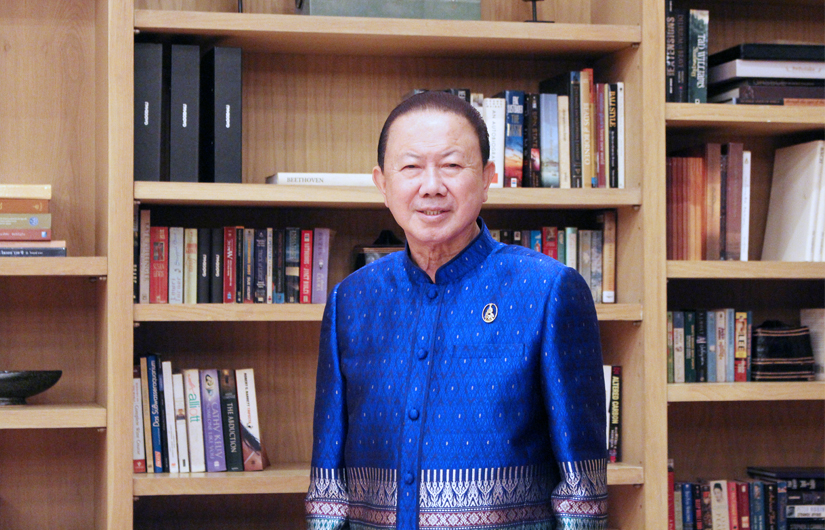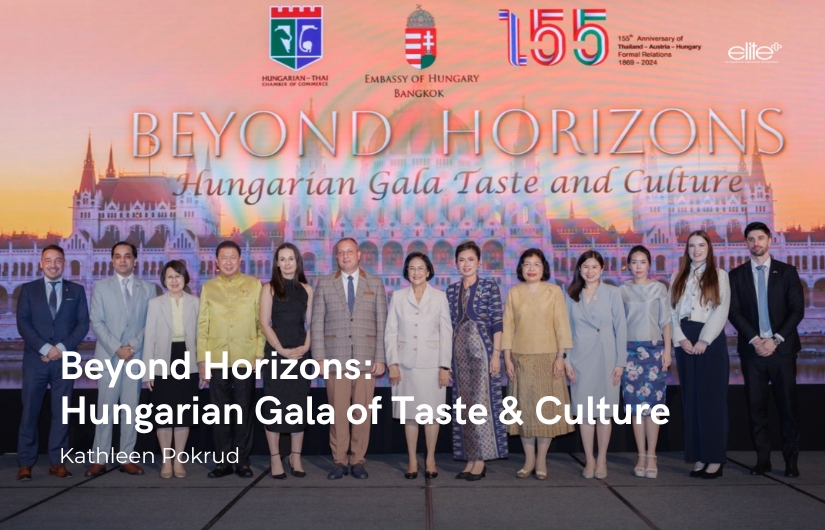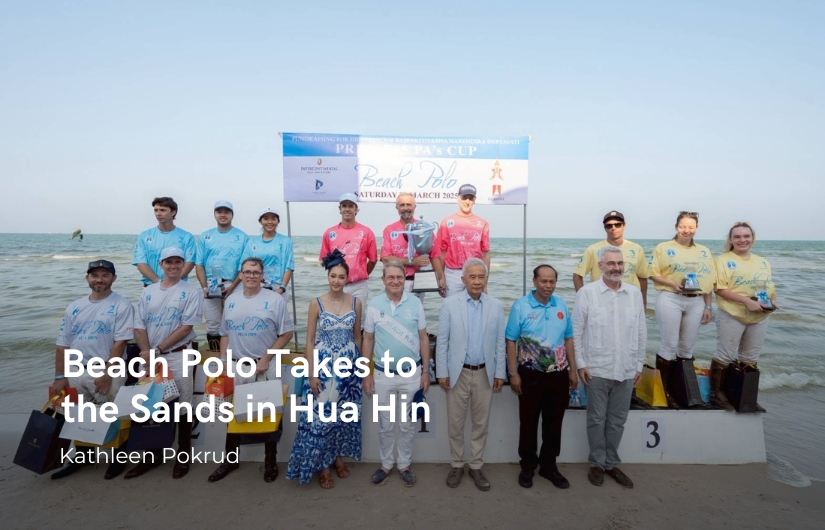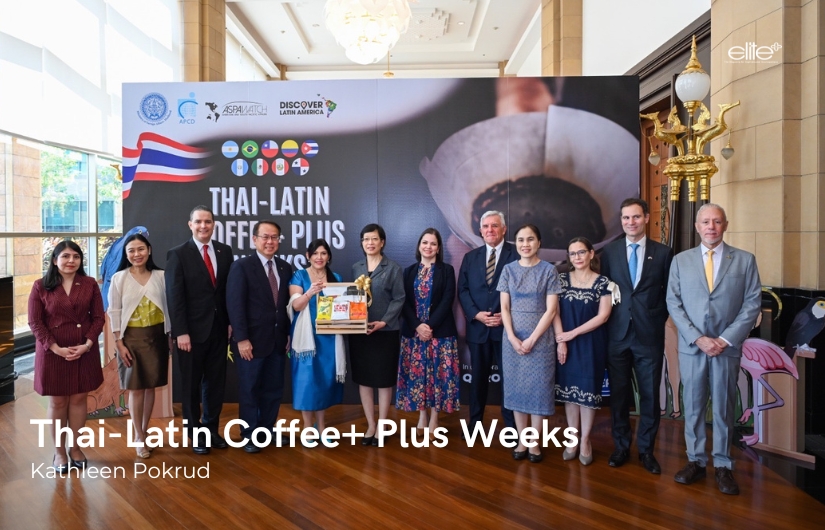Mr Sanan Angubolkul was appointed as chairman of Srithai Superware PCL in 2005 after the passing of its founder, Mr Sumit Lertsumitkul. The company has grown from a small family business into a multinational conglomerate, producing plastic injection products and melamine tableware products over five decades. Srithai has now become the largest manufacturer of high-quality melamine products, exporting to over 100 countries around the world. Mr Sanan is committed to personal development and life-long learning. Elite+ sat down with Mr Sanan to understand his motto, “Your success is our success”, 5 E’s: Empathy, Empower, Engagement, Encouragement and Enable, and his focus on sustainability and social development.
With your involvement in plastics and the growing concern of waste disposal and climate change, you have introduced producing recyclable plastics. Can you explain this policy and how it is being implemented?
At Srithai, we had to face this challenge head-on and address the global concern regarding plastic in the environment. We chose to aim at setting a global example of corporate responsibility. I use the word “chose” on purpose because implementing these policies requires a deliberate and sometimes difficult and sacrificial decision.
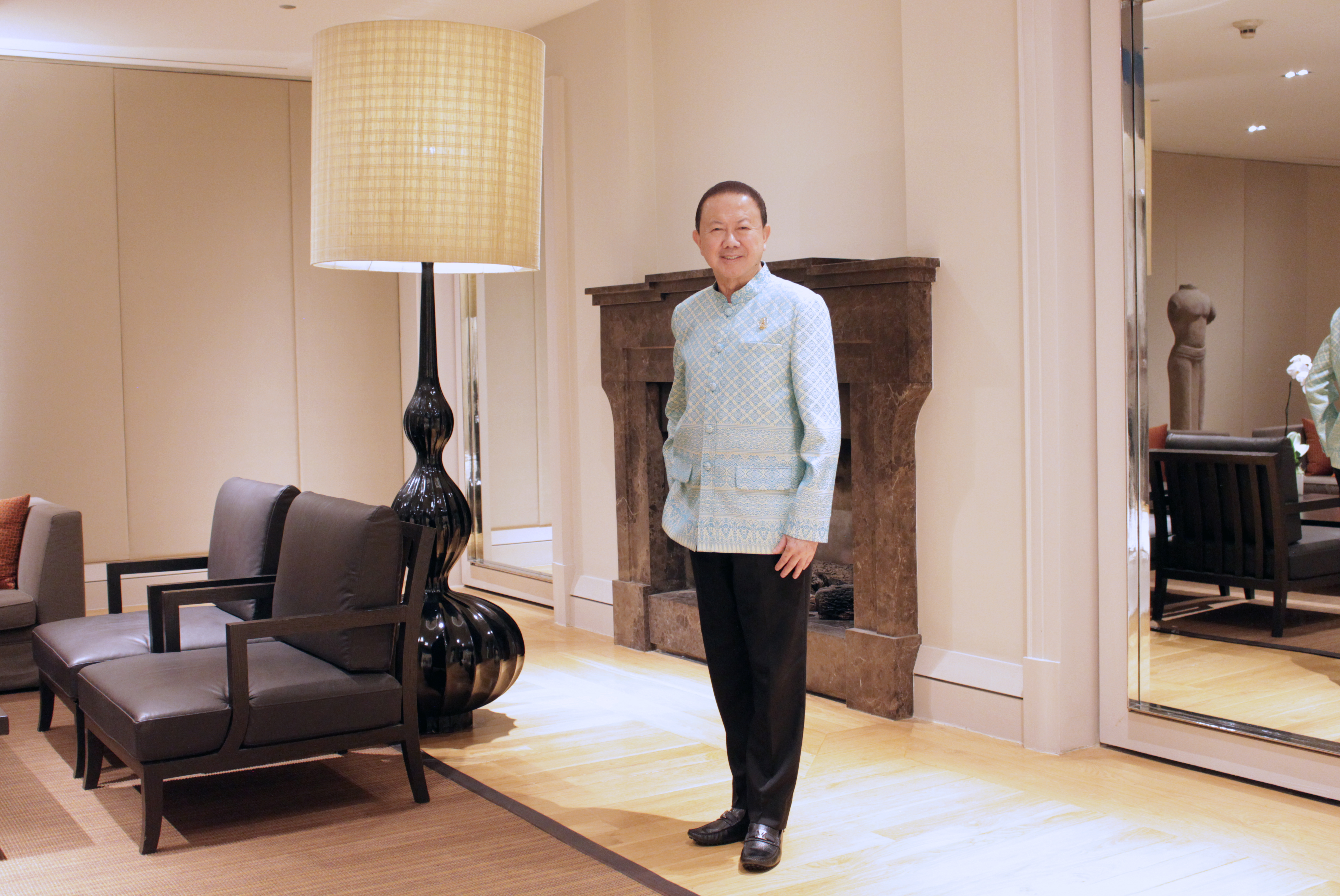
We understand you believe strongly in developing young people in your company and the business sector as a whole, for example, introducing a mentorship program. Can you tell us something about this?
In my capacity as chairman of the Thai Chamber of Commerce (TCC) and the Board of Trade of Thailand (BoT), it is my obligation to promote human-centered development in our country. One project I am especially proud of is our Young Entrepreneurs Chamber of Commerce, or YEC, which the TCC established 10 years ago. Under this project, TCC urges young entrepreneurs who are members and directors of their provincial chamber of commerce to propose and implement activities that promote trade and investment in their province. This project is a nationwide platform for high-calibre talented entrepreneurs to develop the economy of their provinces. This approach has now been extended to the Young Public and Private Collaboration (YPC) program where young people from the public sector work closely with young people from the private sector. I am also the founder of AFS Foundation Thailand, a world-class intercultural education organization, established over 60 years ago. As AFS Intercultural Programs Thailand chairman, I am proud to have been awarded the AFS Medal for Outstanding Leadership and Commitment to Global Citizenship by AFS International. The medal, which is only rarely given, was originally awarded only to the heroic Volunteer Ambulance Drivers who served in the American Field Service during World War II. And about 10 years ago, I was chosen over 60 potential candidates to receive the "AFS President's Award." AFS International recognizes my service towards advancing intercultural exchange in Thailand and around the world.
In 2021, you became the chairman of the Thai Chamber of Commerce (TCC) and Board of Trade. Have you been promoting both recycling and sustainable development as well as mentorship among your organization’s membership?
First of all, let me start with our ‘Connect the Dots’ policy which makes TCC a focal point in connecting all sectors—both public and private—and promoting sustainable economic growth through a strong synergy of all stakeholders. We must also be committed to big and small opportunities, and included in this synergy is promoting everything Thai, not only in terms of business, but also our rich culture. This is why since I became chairman, I only use Thai silk attire on a daily basis.
The TCC is also operating according to the guidelines of the Bangkok Goals based on the BCG economy model as discussed at the APEC conference that Thailand hosted last year. The bio-circular-green (BCG) economy model is described as a model “that integrates three economic approaches, where technology and innovation are used to create value, reduce waste, advance resource efficiency, and promote sustainable business models.” Therefore, the TCC and BoT policies and actions are undergirded by these foundational goals, and our implementations are very multi-layered and involve the full entrepreneurial spectrum, from awareness campaigns to implementation policies, from the leadership level to regular employees and from large companies to SMEs.
What are some of the endeavors and how is the TCC supporting these, particularly among SME members?
After the past APEC 2022 meeting in Thailand, most small-medium entrepreneurs (SMEs) have already started to recognize and understand the BCG model but there are some who do not understand it and are unable to improve their business processes according to the guidelines. This implementation of the BCG also involves financial investment, and this is another obstacle to upgrading production and service levels to BCG standards. To help solve this problem, the TCC, in cooperation with the Bank of Thailand and other public and private financial institutions, is working on additional measures whereby we can help and support SMEs to access funding sources. In particular, we are negotiating with financial institutions to establish the BCG Finance Fund, as well as offering to help the government find funding sources for businesses that want to switch to environmentally friendly operations and are in line with the BCG model. In addition, the TCC has initiated the establishment of the Circular Economy Institute for entrepreneurs and consumers in collaboration with the University of the Thai Chamber of Commerce to help explore productive and proven ways to apply this concept.
As the Thai economy rebounds following the Covid-19 pandemic, particularly in the areas of tourism and hospitality, what is the TCC doing to contribute and sustain this growth?
During the Covid-19 crisis, the TCC was in the forefront of helping our country survive the serious negative impact of the pandemic and now that it has abated, we are working on the best recovery efforts for our country. The TCC was the first private organization in the country to initiate collaborative measures between the public and private sectors such as the Phuket Sandbox Model created as a safe area for foreign tourists. We also worked with the Government to implement the “Bubble and Seal” method to control outbreaks in large industrial plants. In addition, the TCC helped to accelerate the supply of vaccines resulting in the addition of more than 100 million doses and, with further collaboration with the BMA and the private sector, we were able to establish 25 vaccination centres to provide easy access to these vaccines by the public.
Currently, the Thai economy is in gradual recovery. Especially in the tourism and service sectors, it is expected that this year there will be 28-30 million tourists visiting Thailand. To this end, the “Happy Model” was also created by the TCC to help upgrade domestic tourism so it prioritizes quality over quantity by focusing on a wellness-centred tourism of eating well, living well, exercising well and sharing of good things. This approach to high-quality tourism we named TAGTHAI, which has become a key to attracting guests to our country.
I understand you were involved in organizing a visit of a trade delegation to Saudi Arabia as Thailand has resumed diplomatic relations with the Kingdom. Can you tell us what you hoped to gain from these meetings and discussions?
Our Government was able to re-establish relations with Saudi Arabia in 2022 after 32 years of an embargo. More than a year ago, it was the privilege of the TCC to participate in the milestone event of being the first private organization to lead a group of Thai entrepreneurs to visit Saudi Arabia to renew and strengthen the relationship between our business communities.
Saudi Arabia is keenly interested in the community concept of PTT gas stations here, so they are inviting PTT to build gas stations there. They have also shown interest in using Thailand as a centre for storing and distributing oil to other countries in the region. Ventures were also made in the medical, health and wellness centre sectors. The resultant agreements reached an amazing total of up to 17,500 million Baht in investments. Negotiations in the agriculture and food sectors are also in the process of forming joint ventures in the development of aquaculture and chicken businesses for the Saudi market.
We understand you are also president of the Young Presidents Organization (YPO) of Thailand and vice president of the YPO Asia-Pacific. Have you been able to coordinate your TCC activities, especially concerning sustainable development with the YPO, and if so, in what ways?
The Young President’s Organization, or YPO, is a community of top CEOs in 150 countries globally and it works closely with the YPO Gold. I had the honor of becoming the vice-president of the YPO for the Asia-Pacific region over 20 years ago and chapter chair of YPO Gold. YPO has been in Thailand for almost 50 years, and I put a major priority on building up our younger generation of business leaders, which I actively do through the YPO, and as I mentioned earlier, through the Young Entrepreneurs Chamber of Commerce and many other organizations.
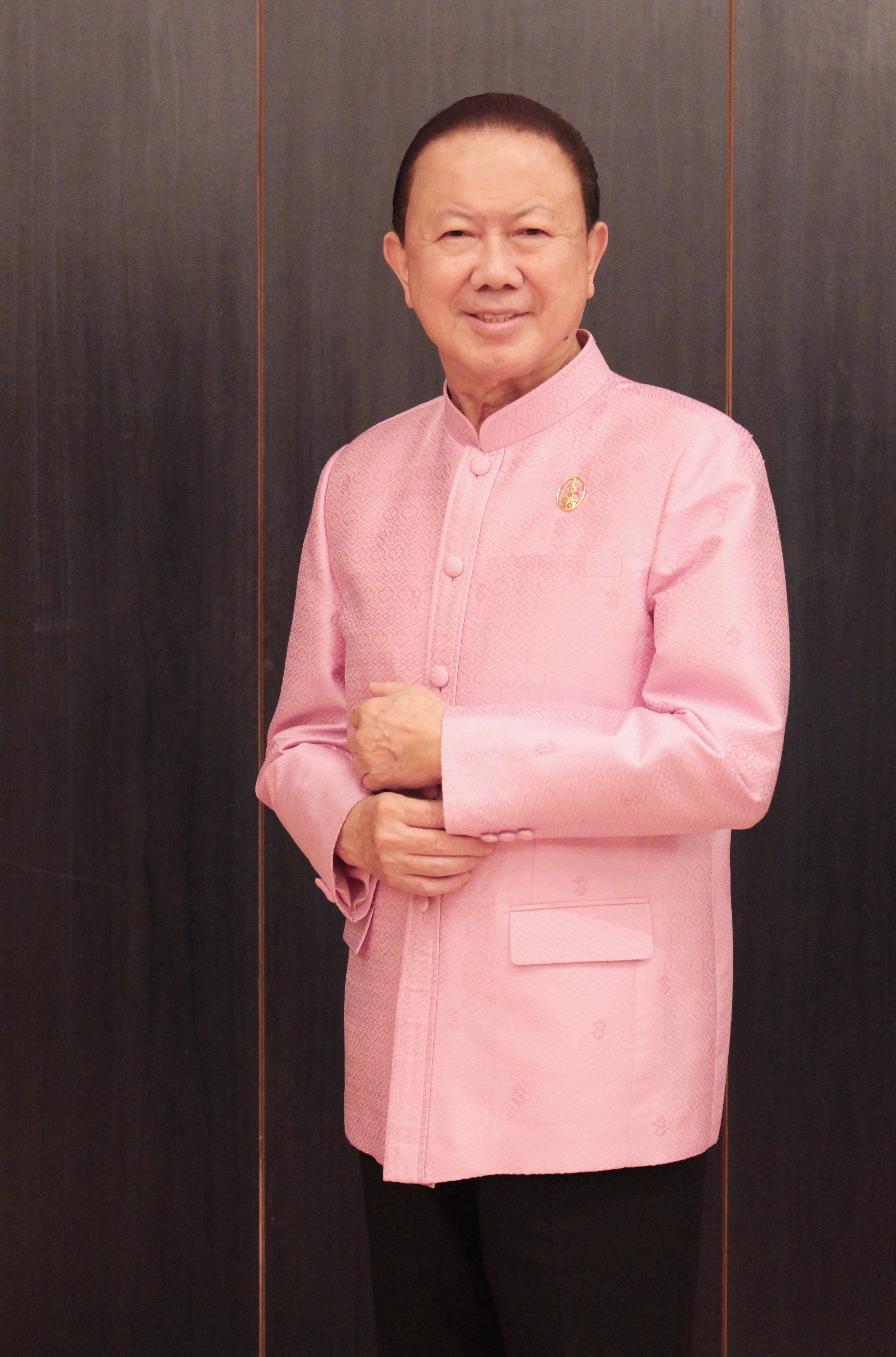
As a new government will soon take office, what would you like to see it do when it comes to Thai business promotion and sustainable development?
The TCC can work with any government in place, and we are already prepared to tackle issues that will raise Thailand’s competitiveness and elevate the status of our people. Amongst the issues we want to propose are moving forward on the “Ease of Doing Business and Ease of Investment” to increase capability, to expand FTA cooperation and attract foreign direct investment in the EEC.
Do you have any final thoughts you would like to leave with our readers?
In my various capacities, mainly as chairman of the Thai Chamber of Commerce and chairman and president of Srithai Superware PCL, I have always strongly believed that the only way to advance in prosperity and sustainability in this rapidly changing world is to have a human-centred perspective. When we take care of people, they are the ones that build our business. It is the one and only way to attain sustainability. Human-centeredness is the backbone of long-term impact.


